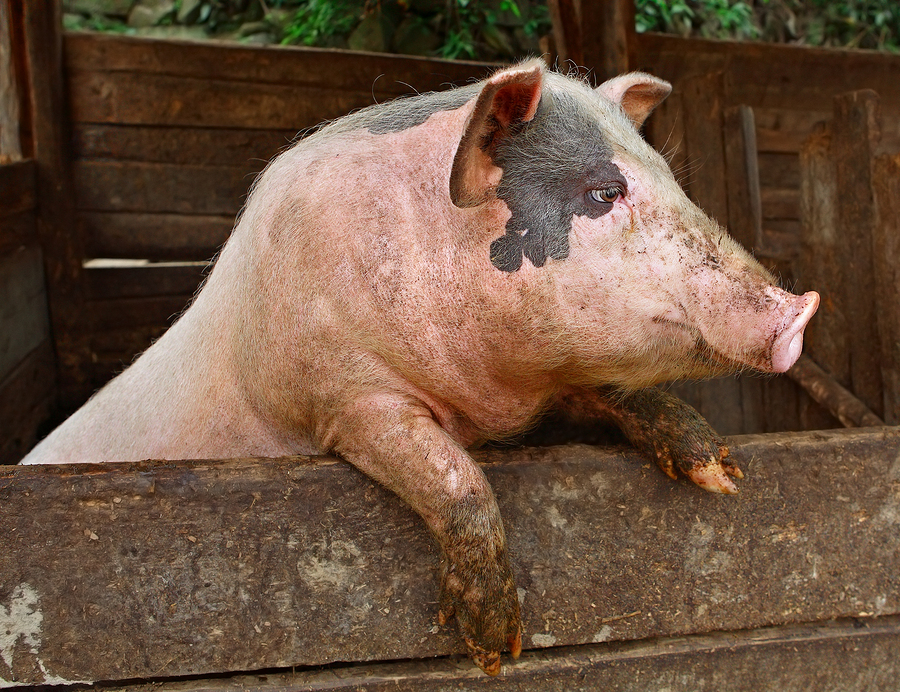 There is currently,
on YouTube, a video with the title, Undercover Video Appears to Show Pigs Conscious,
Shaking in Pain as They Face Slaughterhouse Death, “Compassion Over
Killing”
There is currently,
on YouTube, a video with the title, Undercover Video Appears to Show Pigs Conscious,
Shaking in Pain as They Face Slaughterhouse Death, “Compassion Over
Killing”
A month ago, the World Health
Organization came out with a study that labeled bacon a number one carcinogen,
right up there with arsenic, formaldehyde and diesel exhaust. It has been determined that three slices of
bacon per day will increase the chance of developing colorectal and lung cancer
by 18%.
Other researchers, such as
oncologist Alfred Neugit, at Columbia, have found that, while smoking increases
the risk of lung cancer by 2,500% the risk of bacon-caused cancer is actually
at 6% and not much to worry about.
If we were talking about sardines,
this would not affect many people emotionally. But we are talking about bacon, a comfort food that sits beside mashed
potatoes and macaroni and cheese in an arsenal of items that make many
individuals feel like the planet is spinning in the right direction. It is estimated that the average person eats
18 pounds of bacon per year.
Bacon has steadily increased in
popularity in the 21st century. In the
year ending in April, 2014, 1.1 billion servings of bacon were eaten by
consumers. There are websites dedicated
to bacon, such as, bacontoday.com, baconfreak.com, which features bacon of
the month clubs, and a listing in Wikipedia for bacon mania.
Bacon was “swilled” down in the Roman Empire. It is reported that Christopher Columbus
brought 4 pigs to the “New World” and a love affair was set in motion.In 1924,
Oscar Meyer brought prepackaged bacon strips to market, and the popularity of
bacon grew exponentially.
Among the ranks of bacon advocates
are those who point out that bacon is loaded with good fat. 50% of it is monounsaturated, much of it is
made up of oleic acid, which is found in olive oil, it contains phosophatidyl
choline, and has antioxidant activity superior to vitamin E.
It is further argued that bacon
stabilizes blood sugar, fights placque, prevents mood swings and anxiety, improves focus and enhances coping
skills. As for those who fear nitrites,
Dr. Nathan Bryan of the University of Texas Department of Biomedical Research
reports that claims of nitrite free or organically cured meats is a deception
that has been promoted to the public.
Vegans and vegetarians fear that
bacon is a “gateway”
meat. Rather like marijuana, which some
believe has a direct link to heroin, there is concern that the ingestion of
bacon will lead to frenzied return to the consumption of animal products. Indeed, it has been reported that
plant-eaters have a tendency to make an exception for bacon.
There are claims that the use of
bacon is linked to the slow food (as opposed to the fast food) movement. In it’s manifesto, this movement is dedicated to three
concepts about food, that it is:
- GOOD: quality, flavorsome and healthy food
- CLEAN: production that does not
harm the environment
- FAIR: accessible prices for
consumers and fair conditions and pay for producers
Scientific
research has tried to break down the aspects of bacon that make it so
widely
appealing. The aroma, fat content,
crunchiness, sweetness and chewiness have all been
examined.
For many individuals, the presence of bacon brings with it
conflicting emotions. “Oh, good, bacon”
(kind of like certain dog treats) to, “I really shouldn’t eat that” (but I want to).
Some say that the fat in bacon is just naughty enough to appeal to the inner rebel.
There are not many foods that play with our emotions in
the way that bacon does. It has been reported that in some families,
if the aroma of bacon is not present on Sunday
morning, they simply don’t bother getting out of bed.
Whether this is a moral issue, such as feelings and
beliefs surrounding the slaughter
of live animals, a health issue, will my wellbeing be helped or harmed, or an
ecological dilemma as to what is good for the planet, bacon presents us with a unique
puzzle. Do we embrace or reject, indulge
or abstain?
There are arguments to support all possible answers to
these questions. What appears to
be undeniable is that, for better or worse, bacon is here to stay. Find your own
solution and stop fretting — it is just bacon after all!
References
Bratskeir, K. (2015, October 26). WHO Processed Meats Cause Cancer.
Retrieved November 11, 2015.
Ferner, M. (2015, November 11). Undercover Video Appears to Show Pigs
Conscious, Shaking in Pain as They Face Slaughterhouse. Retrieved November 12,
2015.
Grush, L. (2015, October 27). Eating Red & Processed Meat Isn't
Going to Increase Your Risk of Cancer by That Much. Retrieved November 11,
2015.
Gunnar, K. (2013, May 1). Is Bacon Bad for you or Good? Retrieved
November 11, 2015.
Kaayla, D. (2012, July 27). Bacon, the Feel Good Food. Retrieved
December 11, 2015.
Spool, A. (2015, June 1). Bacon. Retrieved November 11, 2015.
About the Author

Ruth Gordon
, MA/MSW/LCSWI bring with me +30 years of experience as a clinician. My Masters degrees are from: Assumption College, Worcester, MA, Master of Arts in Psychology & Counseling/ and Boston University School of Social Work, Boston, MA, an MSW in Clinical Social Work. This is the 11th year I have written a monthly newsletter that is sent to approximately 500 individuals. The archive can be found on my website, www.foreverfabulousyou.com.
Office Location:
The OC Building, 11983 Tamiami Trail, N., Naples, FL 34110
Naples, Florida
34110
United States
Phone: 239 293-4314
Contact Ruth Gordon
Professional Website:
www.foreverfabulousyou.com